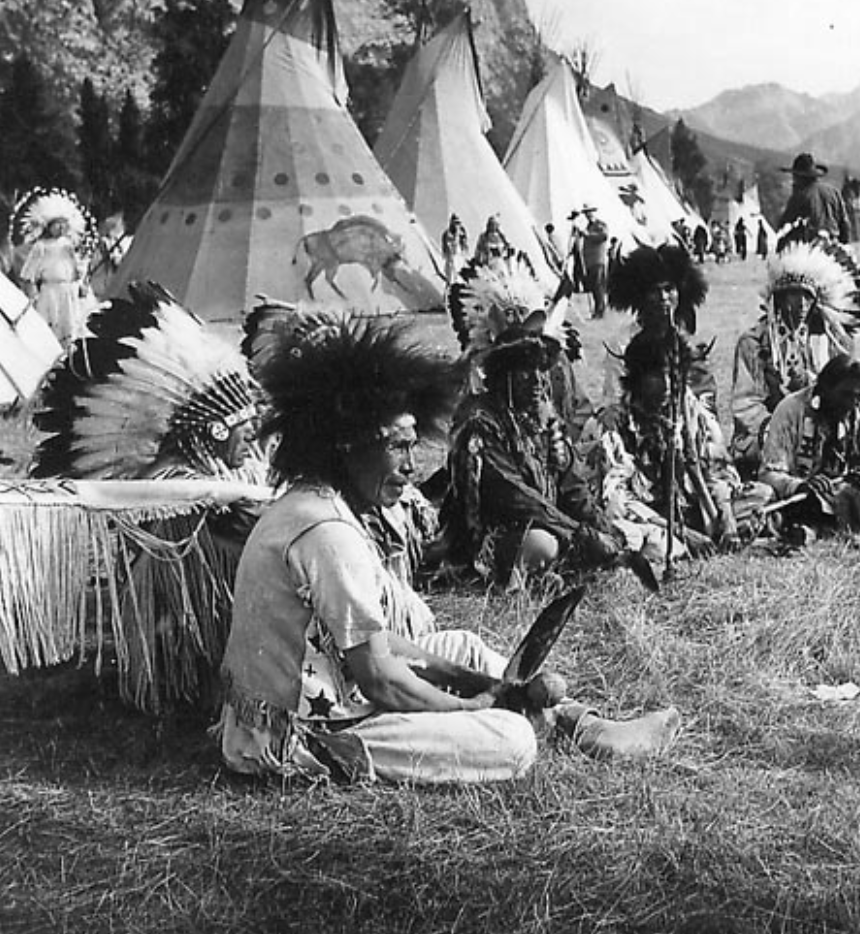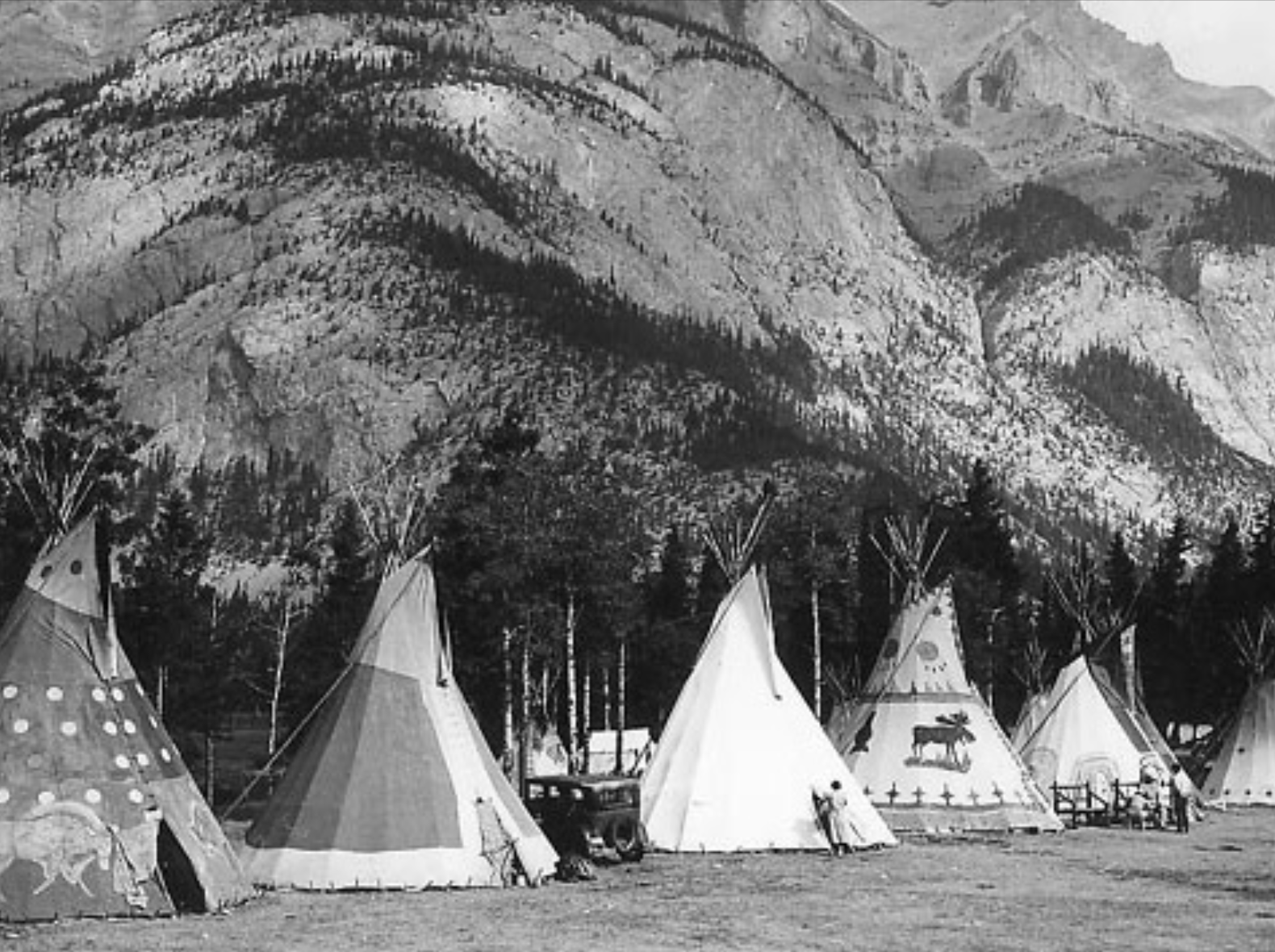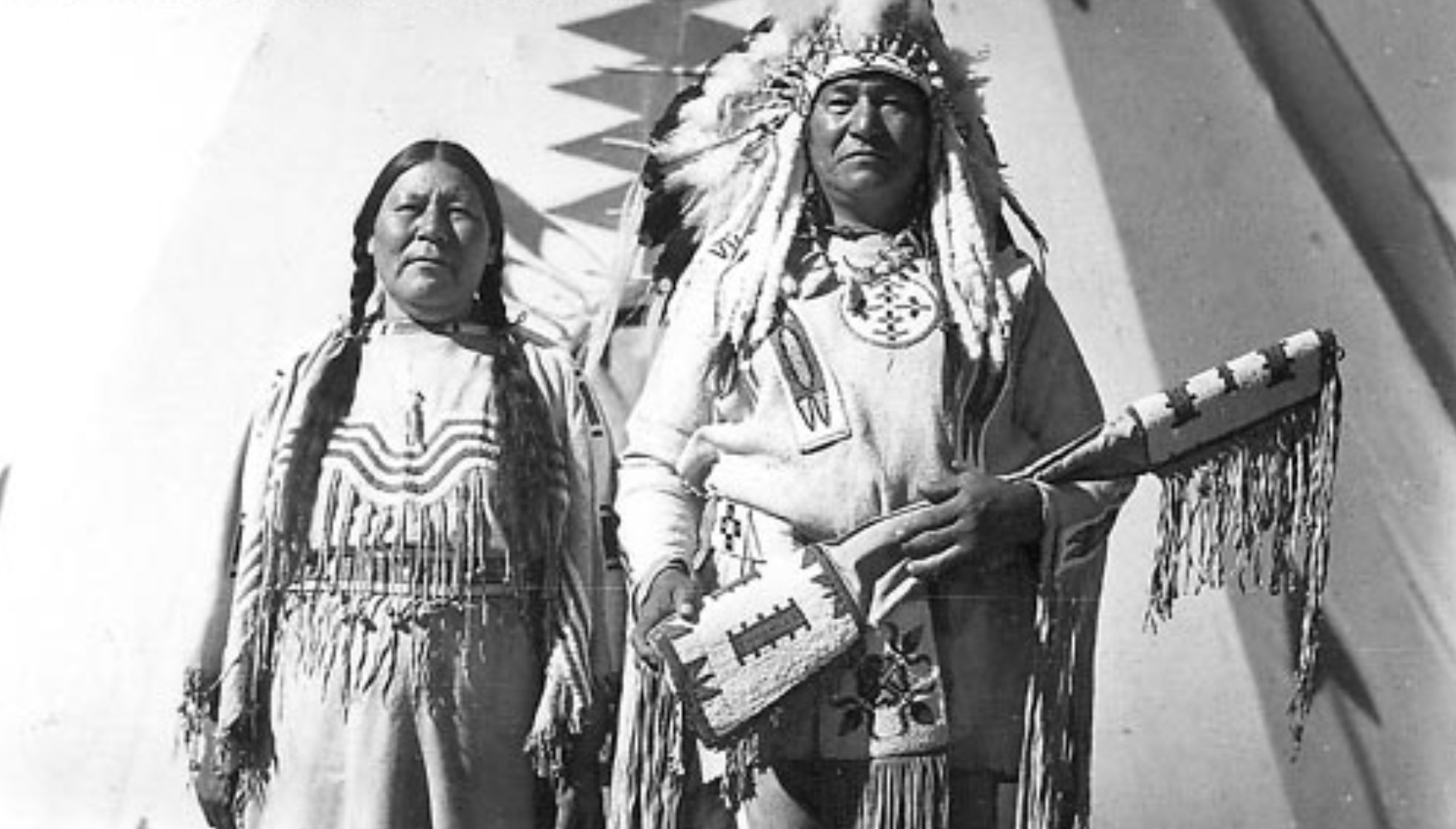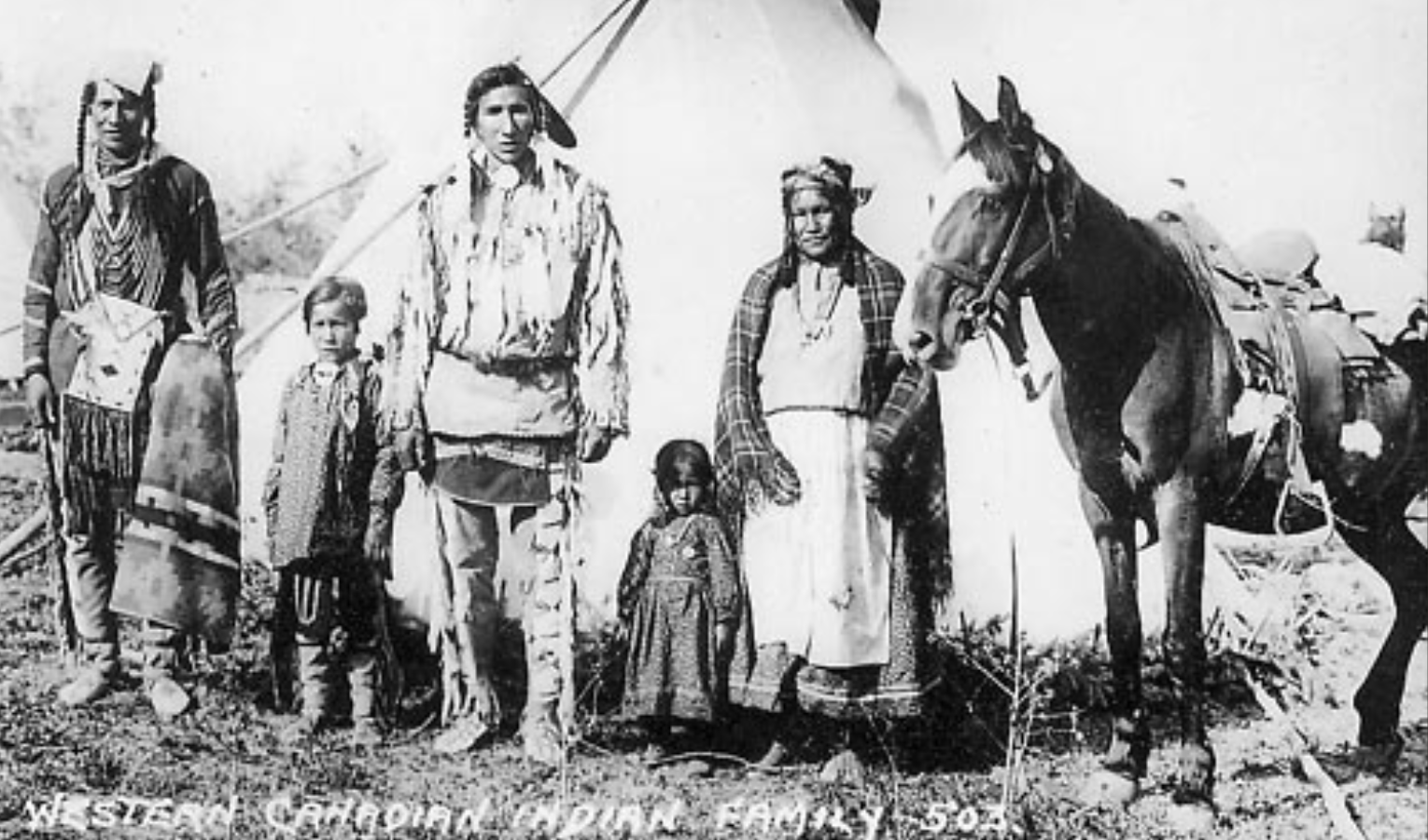
Chiniki’s History
Chiniki First Nation is one of three bands - alongside Bearspaw and Goodstoney - that form the Stoney Nakoda Nation of Alberta. Known in our Nakoda language as Îyârhe Nakoda, “people of the mountains,” we are culturally and linguistically tied to the Plains Assiniboine. Early European settlers translated our name to “Stoney” due to our traditional practice of cooking with heated stones.
For generations, our people roamed the foothills and Rocky Mountain slopes. From today’s Alberta into parts of Montana and British Columbia. Following buffalo herds, hunting big game, fishing and harvesting plants. Our way of life was deeply guided by land and ceremony.
In 1877 Chiefs John Chiniki, Jacob Bearspaw and Jacob Goodstoney represented our people at the signing of Treaty 7 at Blackfoot Crossing. As a result, reserve lands were established. Including Stoney 142, 143, 144 (Mini Thni), Eden Valley, Rabbit Lake and Big Horn.
Following the creation of Rocky Mountain and Edmonton trading posts in the late 1800s, our people became skilled guides and intermediaries. Bridging relationships between fur traders, explorers and missionaries. In 1879 reserve land was set aside beside the Morleyville Mission and additional land was confirmed in the 1940s.
Our culture, language and traditional systems were challenged by colonial forces: through the Indian Act, residential schools, pass system, and restricted land rights. These led to systemic disruption and generational trauma. A history of resilience and healing that continues to this day.
From ceremonial origins to modern governance and economic programs, Chiniki First Nation continues to thrive. We honour the memory of our ancestors and steward our lands with care, driven by our culture, wisdom and unity. This is our history and this is our continued story.
“The land is not inherited from our ancestors, it is borrowed from our children.”
— STONEY NAKODA ELDERS’ TEACHING









